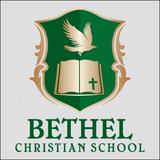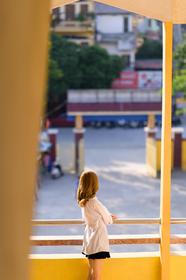Peace Valley School is a non-profit, private secondary school for 12 students ages 10 and up. The school is located on a 5-acre farm (Odd Duck Farm) which is home to our founder/director’s family, a young orchard, a market garden, 14 happy chickens, 6 sheep, a dog and a cat.
Learning takes place everywhere, but the heart of the school is the loft in the farm house, which was specifically designed to be a classroom from the start.
The one room, one farm model was developed by Molly Lord-Garrettson. Here, students are empowered to see the world and make a difference.
School Overview
School Type
Religious Affiliation
Grades Offered
Grades 10
Year Founded
2017
Student Body
Total Students
8 students
Student Body Type
Co-ed
% Students of Color
13%
State avg.: 25%
Students by Grade

Academics and Faculty
Total Classroom Teachers
1 teacher
Student-Teacher Ratio
8:1
National avg.: 13:1
Tuition and Acceptance Rate
Admission Deadline
None / Rolling
Yearly Tuition Cost
$10,000
School Notes
- OUR MISSION
- At Peace Valley School we encourage all learners to make education real. To do this, we learn by working together on real-world projects to solve universal problems. By practicing healthy communication to solve a common problem through inquiry, we can garner a sense ofresponsibilityinstead ofentitlement. We can become perpetual learners with the courage and life-skills that entails. We can discover who we are and help each other grow. We can be the change we want to see in the world.
- OUR CORE VALUES
- Community*Integration*Foundations*Vocation*Stewardship*Creativity*Daily Practice
- COMMUNITY
- Peace Valley students practice working as a learning community and participating in our local and global communities. In practice, all 12 students will do many things together as a collective, in teams, in pairs, or supportive groupings. Many tasks are more fun when shared, including the tasks of learning and practicing what you have learned. With allowance for independence of thought and spirit and an understanding that sometimes doing things by yourself is what is best for the person and the project, a focus of the school will be on working together to make the world better.Another aspect of community, which coincides with all other core values listed here, is that of participating in, and caring for the community by participating in ways to help others around us. This can mean volunteering to help those in need, working on a public project such as a community garden, park, or road clean-up, volunteering for community groups, or creating our own public works project as a school–it is important to participate in the world which we occupy and build positive relationships within our community.
- INTEGRATION
- One way we make education real, is by combining many different approaches to thinking for problem solving. The idea is to look at a concept from the scientific, philosophical, literary, musical, artistic, social/historical as well as other perspectives as an integral concept, not several separate courses. This makes all curriculum more student-centered and realistic. It also allows for a student to take a social justice approach to problem-solving, and to question authority while applying its principles. Many aspects of each project or learning path will include an interdisciplinary reflection.
- FOUNDATIONS
- Certain sets of skills and knowledge (like math, grammar, vocabulary, and scientific principles) must be practiced to be mastered. A student’s individual learning path will be set with many chances to practice that information which is necessary before applying it to problem-solving or creative activities. As integrative and realistic as our curriculum is, a sound knowledge base is the foundation upon which integration rests. The next core value, Vocation, addresses ways in which we can practice these skills while aligning them to a student’s individual passions.
- VOCATION
- Our curriculum of integrated individualized education is largely student led. At Peace Valley, we believe that the higher purpose of education is to aid young people in exploring their interests and passions. Therefore, vocation will be a centerpiece. The student can work all foundational and integrational aspects around an interest. Most of the school’s resources will be spent helping students follow their dreams. This means mentors, community courses, internships, and anything else related to the student’s interest. An example is Molly’s 13-year-old niece who, for a few years now, has a very strong interest in horses and large animal veterinary practice. Why not focus the study of science, literature, mathematics, history, and anthropology on this interest? Not to mention art, husbandry, and writing? Any human will excel at something in which s/he is interested. At Peace Valley, we believe while we practice life skills; that practice should be meaningful to the individual.
- STEWARDSHIP
- A part of each school-day will be spent caring for and maintaining our surroundings. The garden, farmhouse, workshop, animals, vehicles, landscape, compost, meals, school room, all are part of the student’s practice in responsibility. Simple tasks of clearing space, putting away tools for others to use, and mending what we’ve broken are important to keep us present, engaged, and compassionate. Chores will rotate based on need, interest, and integration with other learning.
- CREATIVITY
- The culmination of community, integration, foundations, vocation, and stewardship is in our practice of creativity. At Peace Valley, students learn to make, upcycle, repair, or re-function something instead of buying it at a store. This goes from growing food, learning to make garments and other useful items, having artisan woodcrafters, weavers, potters, chefs, master gardeners, be a part of our community so that students, should the whole infrastructure dissolve or should they just choose to model their lives in a way that doesn’t include (or limits the use of) malls, amazon.com, grocery stores and the like, will have the skills necessary to live independent of the mainstream American ethos of consumption. This will be where students can make something to demonstrate what they have learned as well.top
- DAILY PRACTICE
- At Peace Valley, we believe that developing, nurturing, and maintaining the mind-body connection is essential to self-discovery. Students will participate in a daily physical practice such as Yoga, Qi Gong, Tai Chi, Capoeira, Aikido, Kung Fu, or other physical arts that connect the mind to the body. Our School will provide a master for whatever practice the student prefers. If competitive or other organized sports are an interest to the student, the school will foster a relationship with a team or coach at a local school or community group. While daily training for a sport is a wonderful way to use the body, a focus of the school group is to maintain the mind-body connection, so integrating that into daily workouts will still be a focus and a mentor relationship will be present for this purpose.
Source: National Center for Education Statistics (NCES)
Frequently Asked Questions
How much does Peace Valley School cost?
Peace Valley School's tuition is approximately $10,000 for private students.
When is the application deadline for Peace Valley School?
The application deadline for Peace Valley School is rolling (applications are reviewed as they are received year-round).
Recent Articles

Financial Aid 101 for Private School Families 2026
Guide to private school financial aid in 2026, with current costs, key planning timelines and practical steps parents need to maximize aid options.

Why Extracurricular Activities Matter in 2026
Discover why extracurricular activities remain essential in 2026, with updated research, costs, and admissions insights for parents and students.

How to Appeal for Financial Aid After Admission
Learn how to appeal for financial aid after admission to a private school, with expert steps, timelines, and 2026 updates for families.






